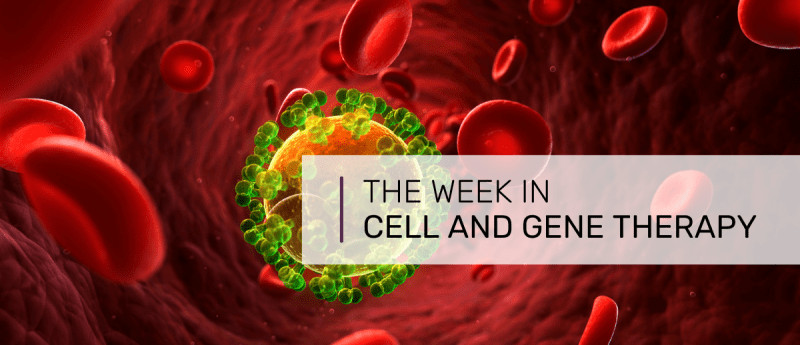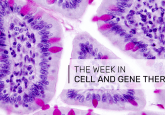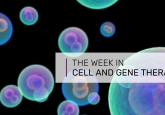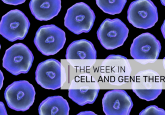Cell therapy weekly: US FDA gives Fast Track designation to single-dose HIV-1 treatment

This week: Excision BioTherapeutics’ (CA, USA) CRISPR-based gene therapy candidate to treat HIV-1 has received Fast Track designation by the US FDA. An Imperial College London (UK) spinout was granted £1.6 million in funding to develop natural killer (NK) cell therapies to treat solid tumors and a cell programming and manufacturing technology has received a foundational US patent.
The news highlights:
- CRISPR-based gene therapy candidate to treat HIV-1 receives US FDA Fast Track designation
- NK:IO receives £1.6 million funding to develop NK cell therapies
- bit.bio’s cell programming technology granted foundational US patent
CRISPR-based gene therapy candidate to treat HIV-1 receives FDA Fast Track designation
Excision BioTherapeutics is a clinical-stage biotechnology company that develops CRISPR-based therapies to cure viral infectious diseases. Their one-time CRISPR-based treatment for HIV-1, called EBT-101, has been granted Fast Track designation by the FDA. Fast Track designation facilitates the development of important new drugs and expedites their review process. In addition, these therapies have the opportunity for more frequent interactions with the FDA and could qualify for other designations such as accelerated approval and priority review.
Daniel Dornbusch, Chief Executive Officer of Excision, said, “We are pleased with the FDA’s decision to grant Fast Track designation to EBT-101. This designation underscores the importance of finding a cure for people living with HIV and bolsters Excision’s efforts to rapidly develop potentially curative therapies for significant unmet medical needs.”
EBT-101 is an in vivo CRISPR-based therapeutic, designed to be curative of HIV-1 after a single intravenous infusion. EBT-101 simultaneously targets three distinct sites in the HIV genome and makes two cuts in retroviral DNA to remove a large portion of the genome, preventing viral escape and reproduction. It is currently being tested in a Phase 1/2 clinical trial to assess safety and tolerability in adults with HIV-1 treated with continuous antiretroviral therapy and with HIV RNA below the level of detection.
NK:IO receives £1.6 million funding to develop NK cell therapies
The Imperial College London spinout company NK:IO (London, UK) has been awarded a £1.6 million grant from Innovate UK’s New Cancer Therapeutics program to support the preclinical development of NK cell therapies that target solid tumors.
NK cell cancer therapies harness the natural ability of NK cells to recognize and target cancerous cells. Whilst showing promise as an immunotherapy, expanding the production of NK cells in order to manufacture cell therapies on a large scale has remained challenging. Additionally, these cells suffer from exhaustion and become ineffective after a period of time. By activating blood stem cell progenitors to yield a high number of NK cells with tumor-killing potency, NK:IO’s unique platform addresses these challenges.
The grant will be used to develop a manufacturing process in collaboration with Cell and Gene Therapy Catapult (CGT Catapult; Edinburgh, UK). CGT Catapult will advise NK:IO in the development of a semi-automated expansion and formulation process for NK cells and provide recommendations on progression toward the clinic.
Matthew Durdy, Chief Executive at CGT Catapult, said: “This project with NK:IO is the first industrial research and development collaboration taking place in our new Edinburgh laboratories. It is promising work, harnessing the intrinsic ability of natural killer cells to tackle disease and we look forward to supporting NK:IO in refining their cell development processes and hopefully to help this therapy progress to clinical trials.”
Mike Ramanos, Co-Founder of NK:IO, commented “The funding will directly support our collaboration with the Cell and Gene Therapy Catapult in a program of development, work to scale our products and make them clinic-ready for our first clinical application in ovarian cancer.”
bit.bio’s cell programming technology granted foundational US patent
bit.bio (Cambridge, UK) has secured a foundational US patent for its precision cell programming and manufacturing technology called opti-ox™, which uses two genomic safe harbor sites to control gene expression in eukaryotic cells. The patent, US 11697823, covers the use of two or more genomic harbor sites to control gene expression in eukaryotic cells.
Opti-ox is used by bit.bio to drive the transcription factor-mediated conversion of induced pluripotent stem cells (iPSCs) into defined cell types in a single step, achieving this within days at an industrial scale whilst maintaining purity and consistency. Cells produced using this technology have already been applied in research, including the identification of novel targets for neurodegenerative diseases.
Mark Kotter, CEO and Founder of bit.bio commented, “Our dual safe harbor approach, opti-ox, is pushing the boundaries of what the field thought was possible when it comes to controlling the biology of human and mammalian cells. It is a foundational toolkit that allows the application of synthetic biology principles to cells of higher species.”





